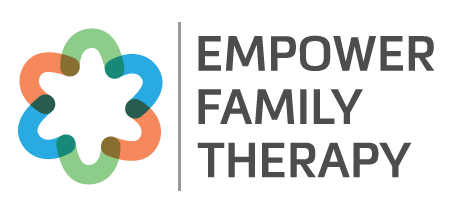Loving Loudly: An Ally’s Guide to Supporting LGBTQIA+ Friends and Family
Family and friendship are the first places we learn what love and belonging look like. But for many folks who identify as members of the LGBTQIA+ these relationships can be complicated. If someone in your life has come out as LGBTQIA+, nonbinary, transgender, polyamorous, or any other identity that challenges societal norms, your support can make a profound difference.
The Power of Chosen Family
For many LGBTQIA+ individuals, biological family may not always offer the understanding or acceptance they need. This is where chosen family becomes essential. Chosen family refers to the people we feel are safe spaces and intentionally bring into our lives.
Your choice to be a safe, affirming, and loving presence matters deeply. It’s not just about acceptance, it’s about showing your LGBTQIA+ friends and family members they can feel truly at home with you.
Here are some examples of how to show up for them in ways that are genuine, affirming, and grounded in respect:
Listen First, Ask Later
When someone shares a personal truth, like coming out, wanting to explore hormone therapy, or navigating multiple loving relationships, etc., it’s an incredibly vulnerable moment! Resist the urge to ask lots of questions right away. Instead, thank them for trusting you. Let them know you’re here to support them, even if you’re still learning.
Use the Right Language
Names, pronouns, and terminology matter! They’re not “just words”—they’re an essential part of how someone feels seen and respected. If your loved one tells you their pronouns (like they/them, she/her, he/him, or neopronouns), use them. If you mess up, correct yourself and move on without making it a big deal.
For polyamorous friends or family, be mindful of how you talk about their partners. Avoid treating one partner as more valid than another. If they use terms like “partners,” “metamours,” or “polycule,” follow their lead.
Validate Their Experience
You don’t have to fully understand or share someone’s identity to affirm it. You might not have grown up with words like “agender” or “demiromantic,” but you can validate your loved one by saying things like:
“I’m so glad you’re being true to yourself!”
“Thank you for helping me understand you better!”
“I love and accept you exactly as you are!”
Support doesn’t require expertise—it just requires care.
Show Up Consistently
It’s not just what we say, it’s how we show up. This might look like:
Including all your loved one’s partners in social or holiday invites
Correcting others when they misgender your friend or family
Voting and advocating for policies that protect LGBTQIA+ rights
Standing up when someone makes a harmful joke or other microaggression
Check in with them about who they are and aren’t comfortable with knowing about their identity
Your friend or family member shouldn’t have to advocate for their humanity every time they walk into a room. Use your position to help make that space safer and more inclusive.
Learn on Your Own
It’s okay if this is new for you. No one is born knowing everything about gender identity, sexual orientation, or relationship models. But don’t rely on your loved one to be your personal educator, especially when they’re already doing the emotional labor of coming out and existing authentically.
Read books and articles. Follow LGBTQIA+ educators online. Listen to podcasts. There are so many resources available. Start exploring!
Let Them Lead Their Journey
Your loved one’s identity might change or evolve. That doesn’t mean they’re confused, it means they’re growing! Trust them to know what’s best for them. Let go of expectations and embrace who they are in each stage of their journey.
If they share new boundaries, respect them. If they ask for space, give it. If they ask for support, offer it freely.
Encourage LGBTQIA+ - Affirming Therapy
Mental health care can be an essential lifeline for LGBTQIA+ individuals, especially when navigating identity, family dynamics, and systemic discrimination. Unfortunately, many have had negative experiences with therapists who don’t understand or affirm their identities. That’s why LGBTQIA+-affirming therapy is so vital.
Therapists trained in LGBTQIA+ and gender-diverse care provide safer, validating spaces for self-exploration, relationship navigation, and healing. If your loved one is exploring therapy, help them access affirming care. And if you're seeking to grow as a supportive friend or family member, therapy can also help you unpack assumptions, process discomfort, and deepen your allyship.
Recognize Intersecting Identities
Identifying as a member of the LGBTQIA+ doesn’t happen in a vacuum. Many LGBTQIA+ individuals also hold other marginalized identities: Black, Indigenous, or other people of color (BIPOC), disabled, neurodivergent, low-income, undocumented, or part of religious or cultural communities that stigmatize LGBTQIA+ identities. These intersecting identities are even more vulnerable to receiving stigma and discrimination, making it harder for your loved one to access support, safety, or understanding.
Support means recognizing how these layers of identity interact—and committing to fighting for justice not just for those who identify as LGBTQIA+, but for all marginalized communities your loved one is part of. It means asking: What barriers might they face that I don’t see? How can I advocate for all of who they are—not just the parts I understand?
Final Thoughts on Supporting LGBTQIA+ Loved Ones
Supporting a friend or family member who belongs to the LGBTQIA+ community isn’t about being perfect. It’s about being present, loving, and willing to grow. Your openness can create a sense of safety that too many members of the LGBTQIA+ community are denied.
The world may not always offer your loved one the care they deserve—but you can. And that support? It can be life-changing. To explore options for LGBTQIA+ affirming care specifically at Empower Family Therapy, contact me at madisong@empowerfamilytherapy.com or request a session with me in our contact form.
Written by Madison Gunter, MA, ALMFT
